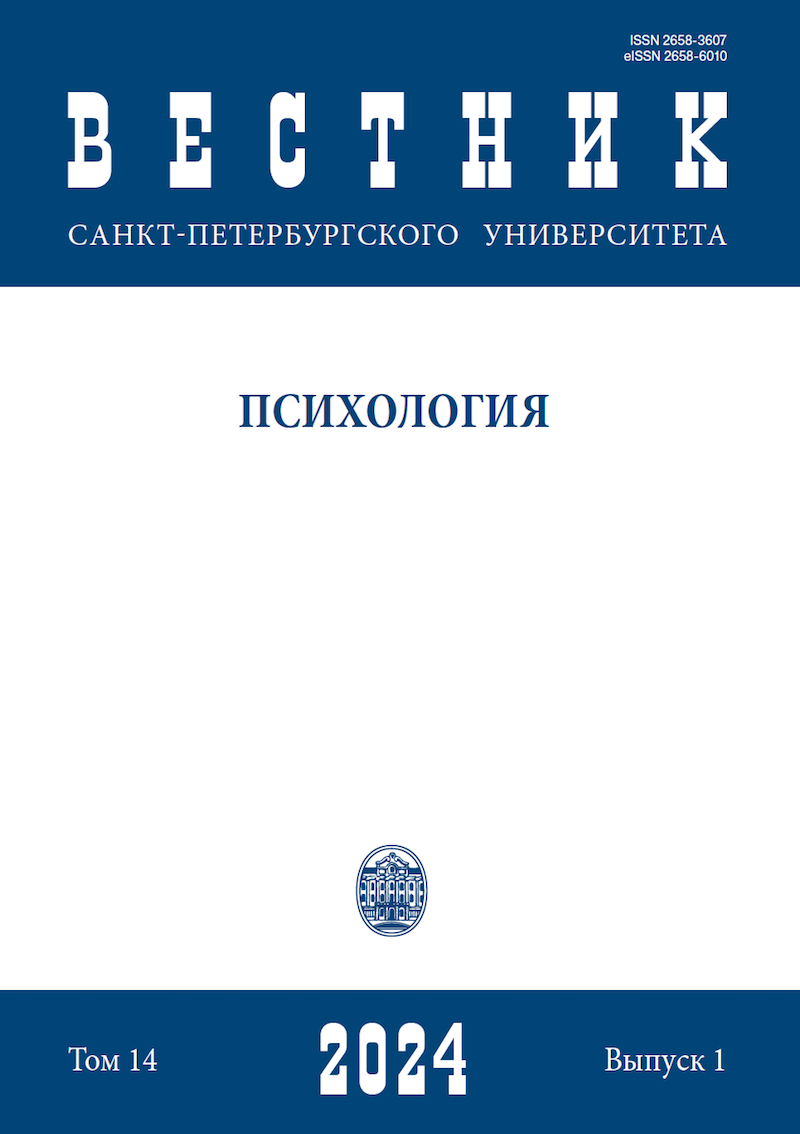Супружеские пары: значение психологического благополучия и субъективного одиночества для чувств любви
DOI:
https://doi.org/10.21638/spbu16.2024.107Аннотация
В психологии не ослабевает внимание к супружеским парам. В основном чувства любви изучаются как предиктор, а психологическое благополучие — как эффект удовлетворенности отношениями. Поскольку чувство любви изменчиво, цель данного исследования — изучить половозрастные особенности и предикторы любви к партнеру; хотя гипотетически удовлетворенность отношениями — наиболее сильный предиктор чувств любви, психологическое благополучие и субъективное одиночество партнеров тоже имеет значение. Выборку составили 387 супружеских пар со стажем брака от полугода до 50 лет. Методы: Шкала любви и симпатии З. Рубина; Шкала психологического благополучия К. Рифф, Шкала субъективного одиночества Д. Рассела; Самооценка удовлетворенности отношениями c шестью вопросами на когнитивную (удовлетворенность, желание сохранить отношения, расстаться) и эмоциональную (негативные эмоции, напряжение, страх одинокости) составляющие. Проведены дисперсионный, корреляционный, факторный и регрессионный анализ. Результаты: респонденты в целом имеют высокий уровень чувств любви, удовлетворенности отношениями и психологического благополучия, причем сходный у обоих супругов. Однако у мужчин чувства любви сильнее, чем у женщин, и стабильны на протяжении брака. Наиболее выраженные чувства любви и низкая удовлетворенность отношениями в период 3–7 лет брака. Удовлетворенность отношениями и психологическое благополучие партнера выступили предикторами чувств любви к партнеру у обоих супругов; специфичный предиктор для мужчин — низкий уровень субъективного одиночества, а для женщин — чувства любви супруга к ней, его субъективное одиночество и собственный страх одинокости (остаться одной без партнера). Супруги, высказывающие желание развестись, отличаются слабыми чувствами любви к партнеру, мужчины не удовлетворены отношениями, и у обоих супругов снижен уровень психологического благополучия: женщины недостаточно компетентны, мужчины затрудняются в постановке жизненных целей, и у обоих супругов низкий уровень самопринятия.
Ключевые слова:
брак, романтическая любовь, удовлетворенность отношениями, психологическое благополучие, субъективное одиночество, страх одинокости
Скачивания
Библиографические ссылки
References
Загрузки
Опубликован
Как цитировать
Выпуск
Раздел
Лицензия
Статьи журнала «Вестник Санкт-Петербургского университета. Психология» находятся в открытом доступе и распространяются в соответствии с условиями Лицензионного Договора с Санкт-Петербургским государственным университетом, который бесплатно предоставляет авторам неограниченное распространение и самостоятельное архивирование.




